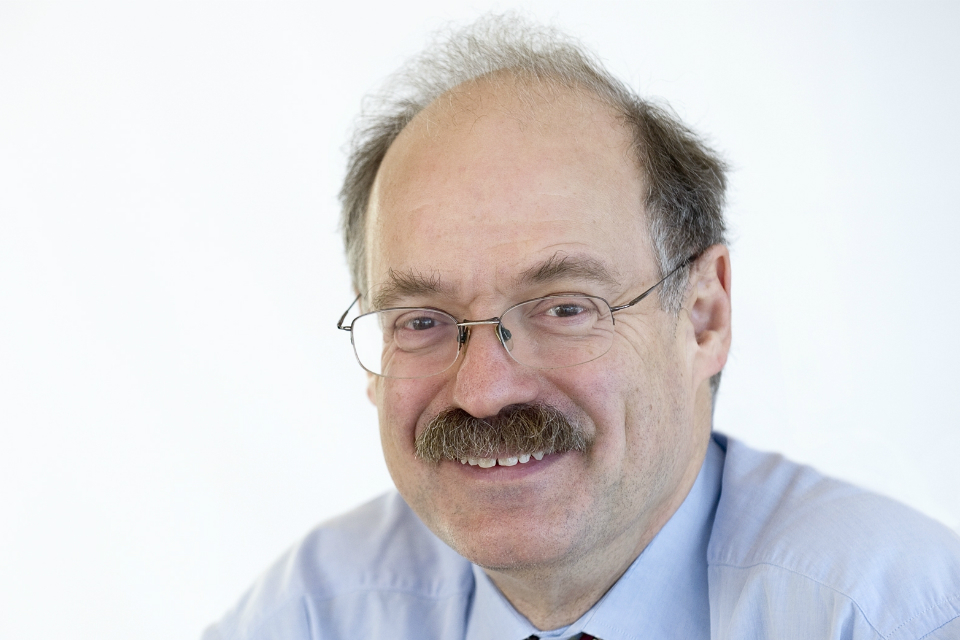Gene 'edits' and other words that don't help
Article by Sir Mark Walport on gene ‘editing’ and DNA research.

This article first appeared in WIRED magazine.
About 400 years ago, Francis Bacon, natural philosopher and Lord Chancellor, analysed the misconceptions and confusion that could be caused by poor choice of words, or by words that mean different things to different people. He described these as the “Idols of the marketplace”, by which he meant the market of ideas between humans, driven by our use or abuse of words.
New technology creates a new marketplace of words, creating totally new words, and changing the meaning and application of existing ones. In doing so, it has a potent opportunity to create new misconceptions and confusion.
One such example is gene ‘editing’ - a new technology that is exciting biologists because it has the potential to make a single change in a genome sequence of billions of nucleotide base pairs. It is one thing to edit an article or a book - but quite another to edit a gene or an organism.
Geneticists have borrowed the language of the publisher to describe the ‘book of life’ - the sequence of chemical nucleotides that encodes the ‘blueprint’ of cells, organs and organisms. So we ‘read’ DNA sequences, and cancer is caused by ‘typographical’ errors in DNA, resulting from inaccurate replication of DNA as cells divide. It is an attractive, if difficult, challenge for biotechnology to adapt and modify the editing mechanisms that have been discovered in nature, to develop technology that could cure or prevent cancer.
So far so good - but what about editing the DNA that we will transmit to future generations through the DNA of eggs and sperm? Now we are ‘editing’ our descendants, and this starts to challenge our values. Science, engineering and technology discovers and invents new ways of doing things - but it doesn’t dictate how we should do them. How should we proceed?
Many families would like to avoid burdening future generations with inherited diseases such as haemophilia or severe developmental disorders. But most would think it wrong to edit the genes that influence the ‘normal’ range of human variation, from eye colour to intelligence or athletic ability. This would challenge our values about what it means to be human, about what is natural and unnatural, about equity and fairness. And we also have to recognise that what is considered normal and abnormal is, at least in part, in the eye of the beholder.
So this technology challenges our fundamental values and beliefs about what is right and what is wrong. Are we on a slippery slope? We don’t need to be; the bioethicist and philosopher John Harris has pointed out that slippery slopes can be approached wearing skis or crampons. We have proved adept in the UK at using crampons to negotiate such slippery slopes as those around embryonic and reproductive technologies. The Human Fertilisation and Embryology Authority (HFEA) was set up as a regulator to deal with these technologies as they are developed, engaging scientific and public audiences in parallel.
We could apply this approach to other areas of technological advance - for example, robotics and autonomous systems, the use of drones, machine learning and artificial intelligence. For it to happen, we need to find ways to conduct parallel discussions about the rigour and potential of the science, engineering and technology on the one hand - and on the societal and values issues on the other - and not to confuse the two. The HFEA shows the importance of a sustained capacity for informed public debate as science and technology continuously open up new possibilities. It also illustrates a key role for trustworthy institutions to conduct the debate.
Both UK Houses of Parliament voted recently to allow medical scientists to proceed in a carefully regulated way towards the implementation of embryonic technology that could prevent the transmission of maternally inherited mitochondrial diseases. Could the approach to novel reproductive technologies be a model for other areas of emerging technology where ‘science meets values’? It is tempting to speculate that Francis Bacon would have been an active participant in these debates.